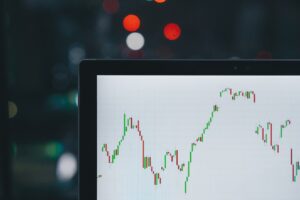The forex market, also known as the foreign exchange market, is the largest and most liquid financial market in the world. It involves the buying and selling of currencies, with the aim of profiting from the fluctuations in exchange rates. Trading online forex has become increasingly popular among beginner traders, as it offers the opportunity to make money from the comfort of your own home. However, like any form of investment, it requires knowledge, skills, and strategies to be successful. In this beginner’s guide to trading online forex, we will provide you with essential tips and strategies to help you navigate the forex market and increase your chances of success.
1. Educate Yourself:
The first step in becoming a successful forex trader is to educate yourself about the market. This involves understanding basic forex terminology, learning how to read forex charts, and familiarizing yourself with different trading tools and indicators. There are numerous online resources, books, and courses available that can help you gain a solid foundation in forex trading.
2. Choose a Reliable Broker:
Selecting a reputable forex broker is crucial for your trading success. Look for brokers that are regulated by reputable financial authorities, offer competitive spreads, have a user-friendly trading platform, and provide excellent customer support. It is also important to consider factors such as deposit and withdrawal methods and trading fees.
3. Start with a Demo Account:
Before risking your real money, it is advisable to practice trading on a demo account. Most brokers offer demo accounts that allow you to trade with virtual money. This will give you the opportunity to familiarize yourself with the trading platform, test different strategies, and gain confidence in your trading abilities without any financial risk.
4. Develop a Trading Plan:
Trading without a plan is like sailing without a compass. A trading plan is a set of rules and guidelines that define your trading strategy, risk tolerance, and money management techniques. It should outline your goals, entry and exit points, and the amount of capital you are willing to risk on each trade. Stick to your plan and avoid emotional decision-making, as it can lead to costly mistakes.
5. Practice Risk Management:
Risk management is an essential aspect of forex trading. It involves assessing and mitigating potential risks to protect your trading capital. One commonly used risk management technique is limiting your risk exposure by setting stop-loss orders. A stop-loss order is a predetermined price at which your trade will be automatically closed if the market moves against you. It is also important to avoid overtrading and risking too much capital on a single trade.
6. Follow a Trading Strategy:
Having a trading strategy is crucial for consistent profitability. There are various trading strategies available, such as trend following, breakout trading, and range trading. It is important to find a strategy that suits your trading style and risk tolerance. Backtest your strategy on historical data to assess its profitability before implementing it in real-time trading.
7. Stay Informed:
Stay updated with the latest news, economic indicators, and geopolitical events that can impact currency markets. Economic calendars and news websites can provide you with valuable information on upcoming events that may affect currency prices. Understanding the relationship between economic data and currency movements will enable you to make more informed trading decisions.
8. Be Patient:
Forex trading requires patience and discipline. Avoid chasing quick profits and be prepared for occasional losses. It is important to focus on long-term profitability rather than short-term gains. Stick to your trading plan and avoid impulsive trades based on emotions or market noise.
9. Continuous Learning:
The forex market is dynamic and constantly evolving. To stay ahead of the game, continuous learning is essential. Attend webinars, read books, follow reputable forex forums, and learn from experienced traders. Analyze your trades and learn from your mistakes. As you gain experience, you can refine your trading strategies and adapt to changing market conditions.
10. Start Small and Gradually Increase:
As a beginner trader, it is advisable to start with a small trading capital and gradually increase it as you gain experience and confidence. This will allow you to manage risk effectively and minimize potential losses.
In conclusion, trading online forex can be a rewarding endeavor if approached with the right knowledge, skills, and strategies. Educate yourself, choose a reliable broker, practice on a demo account, develop a trading plan, practice risk management, follow a trading strategy, stay informed, be patient, continue learning, and start small. By following these tips and strategies, you can increase your chances of success in the exciting world of online forex trading.






